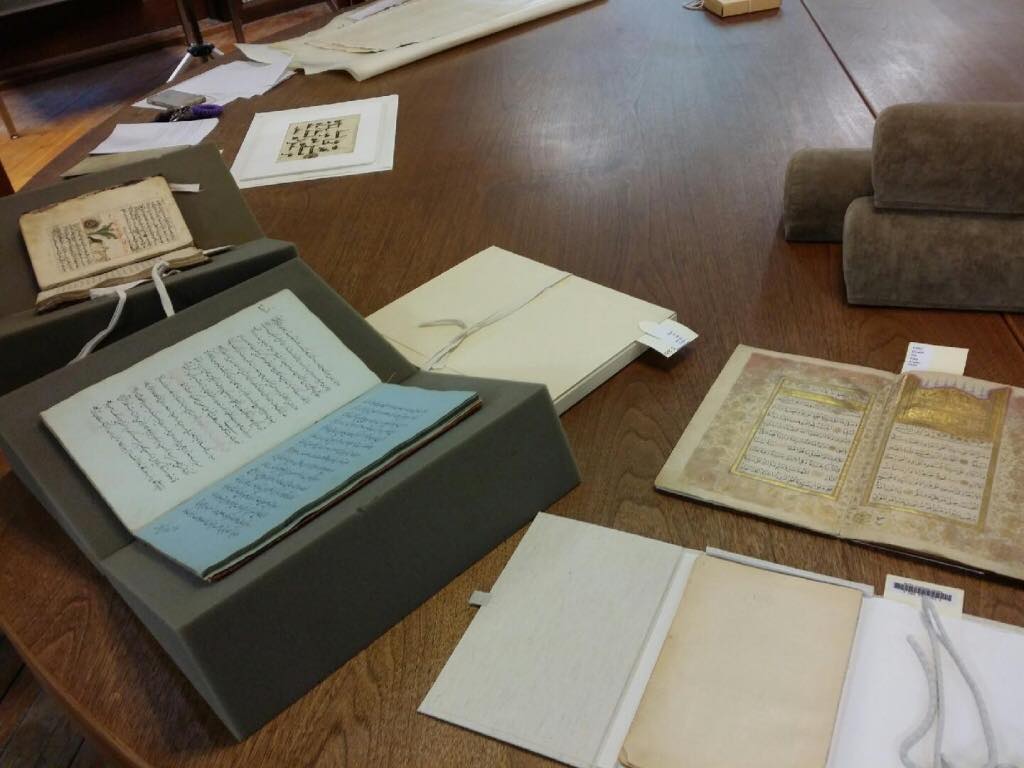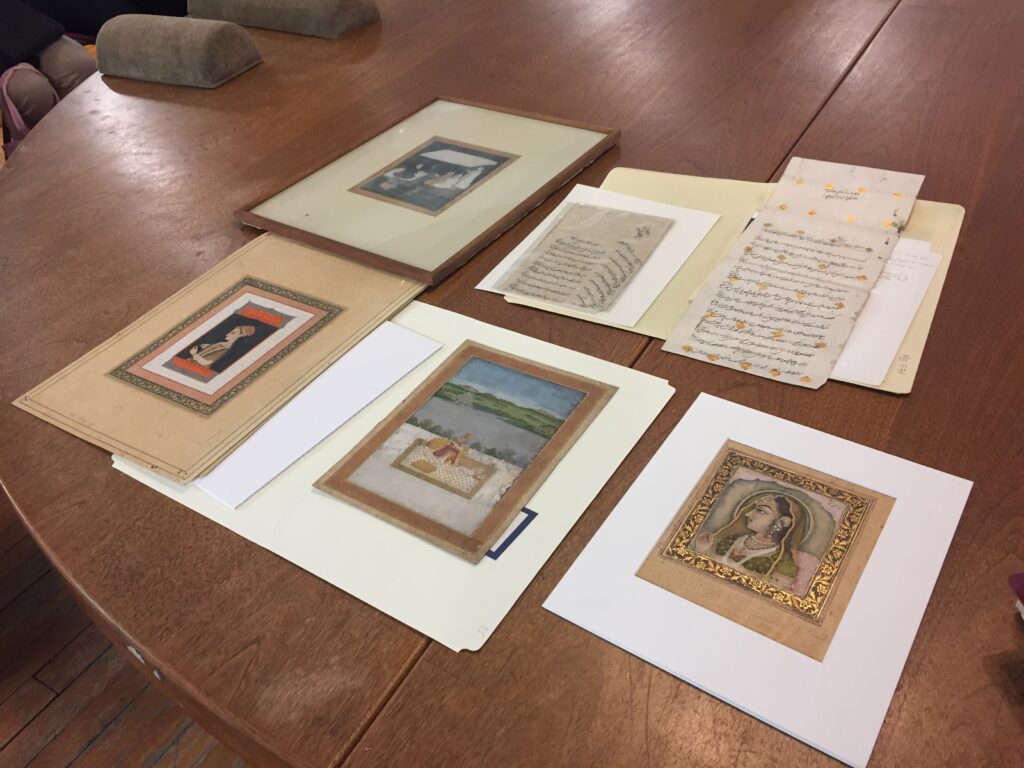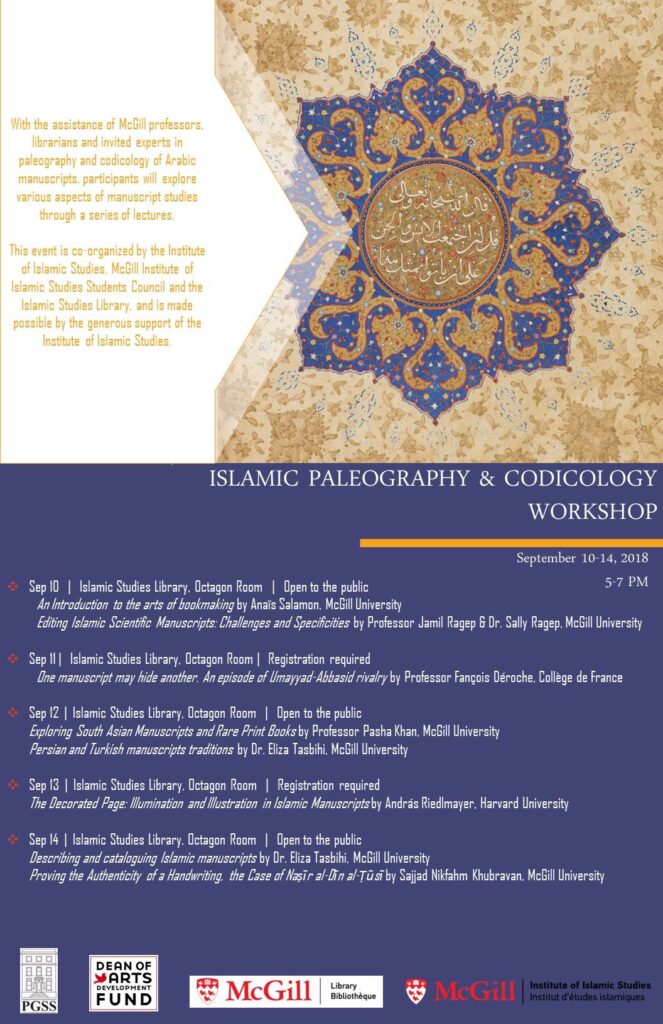PhD Candidate at Institute of Islamic Studies at McGill University
1.Tell us a little about yourself.
- My name is Sabeena Shaikh and I’m a PhD candidate in the Institute of Islamic Studies. Originally, I’m from Texas where I completed my undergraduate studies at the University of Texas at Austin. After, I completed my M.A. at Columbia University and then made my way to McGill in the Fall of 2016. My field of study is the intersection of literature, history, and gender/sexuality in the Indian Subcontinent from approximately the 17th– 20th centuries. In particular, I am interested in courtesans who authored poetry in Urdu and Dakkani and have embarked on a project to recover their voices devoid of an exoticizing, fetishizing, and orientalising gaze. Outside of McGill I enjoy teaching Bollywood fitness classes and spending time with Cilantro (Cilly pronounced silly), my rambunctious and adorable dog.
2.What made you want to come study at McGill?
- I was welcomed at McGill by a very enthusiastic and friendly supervisor named Pasha Khan. Aside from the allure of living in a Francophone city in North America, I was immediately drawn to the kind of pluralistic and diverse society I found in Montreal. It is a truly unique place that I am fortunate to call home.
3.How do you enjoy the student life, work life, and social life at McGill?
- The PhD is sometimes a lonely process, but I have found a good group of colleagues with whom I can celebrate and commiserate. My absolute favorite aspect of the PhD is teaching, and I have been fortunate to instruct and serve as a T.A. [Teaching Assistant] or grader for various courses over the years. While it often makes managing time difficult, I find the most fulfillment from my teaching responsibilities. I think my social life is a bit more active than most PhD students, but perhaps that is because I am naturally an extrovert. McGill has plenty of opportunities to meet, engage, socialize, and interact with other graduate and undergraduate students and its centrality in the city makes it a perfect place to meet young professionals as well.
4.What is your research area?
- My research area is pre-modern history and literature in South Asia.
5.what drew you to this area of research?
- I began my language journey as an undergraduate in the Hindi-Urdu Flagship at the University of Texas at Austin. I think I fell in love with Urdu poetry while participating in a study abroad program as a Junior and the rest is history!
6.What are you working on right now, any specific project?
- Right now, I am reading an 18th century manuscript written by a Deccan courtesan in which there is a very interesting masnavi that seems to be autobiographical. I hope to read this masnavi against the ghazals that this person has authored to say something substantial about their personality.
7.What courses are you currently teaching?
- Currently I am teaching Introductory Urdu-Hindi and I have a great group of students that make our early 8:30 am class time tolerable.
8.Are/were you involved in any extra curricular activities (i.e. committee service, volunteering, organizing a conference/workshop, etc.)? If yes, tell us about them.
- I have participated in various extracurricular activities (perhaps why I’m still writing my dissertation!) but the most substantial were perhaps my role as the ISLAC [Islamic Studies Library Advisory Committee] representative for MIISSC [McGill Institute of Islamic Studies Student Council] for which I received funding to provide some renovations in the Islamic Studies library, my role in organizing an Islamic paleography and codicology workshop in 20181, and my role as the president of MIISSC many times over. Currently I am serving as the BIPOC [Black Indigenous and People of Color] Graduate Network Coordinator for PGSS [Post Graduate Students Society] and learning about equity and inclusion in various departments at McGill. I like to think that I am an engaged member of McGill and particularly the Institute of Islamic Studies because it is a home away from home for me and many others. I’m simply trying to do my part to make our time here more enjoyable, memorable, and impactful.
9.What is –so far– your most vivid memory of your times as a student time at McGill?
- Every year I look forward to the MIISSC Graduate Student Symposium and some of my favorite memories are from the friendships and conversations I shared with other graduate students from around the world. I also really enjoyed the Islamic Studies Poetry Night I held in 2019 where people recited in Persian, Kurdish, Urdu, French, Arabic, German, Albanian, and so many more languages to give the vibe of a true mushaira (poetry gathering). It was a truly magical evening of polyglots and poetry lovers.
10.Do you have any suggestion or recommendations for other students like yourself? Is there anything you would like to share about your experience of working and studying?
- I am perhaps not the perfect example of this, but I think it’s important to have a life outside of the PhD, to have interests and hobbies where you can unwind and relax and to find a support system on which to rely. Graduate school is difficult, and I am a big believer in celebrating the small wins to stay motivated and excited about your project.
At the end, we would like to thank you for participating in this interview for the library blog, this is greatly appreciated. And we wish you the best of luck in all of your endeavors!
1. see picture 1- 3.


Disclaimer: The views and opinions expressed do not necessarily reflect the views and opinions of the Islamic Studies Library nor McGill University



